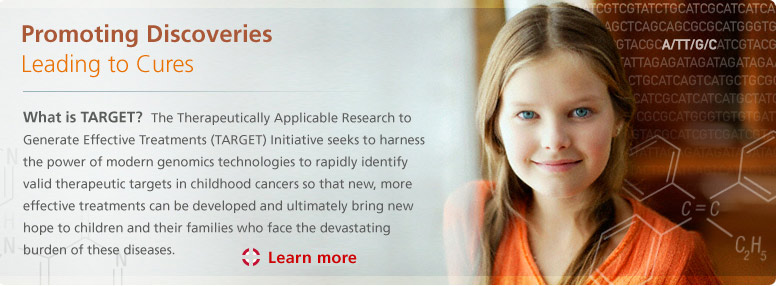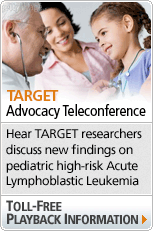Promoting Discoveries
Leading to Cures
What is TARGET? The Therapeutically
Applicable Research to Generate Effective Treatments (TARGET) Initiative seeks to
harness the power of modern genomics technologies to rapidly identify valid therapeutic
targets in childhood cancers so that new, more effective treatments can be developed
and ultimately bring new hope to children and their families who face the devastating
burden of these diseases.
Learn more



